After conditioning, soybeans are bagged and stacked on pallets. Pallets of soybeans will be shipped this winter to our customers, who will plant them in the spring.


After conditioning, soybeans are bagged and stacked on pallets. Pallets of soybeans will be shipped this winter to our customers, who will plant them in the spring.

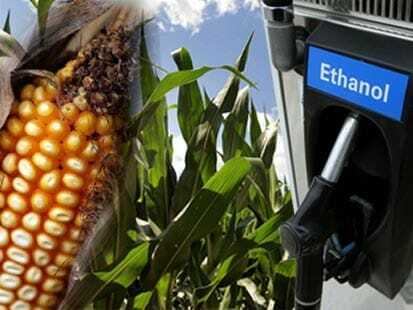
Last week the U.S. Environmental Protection Agency (EPA) announced a new policy, backing off the amount of ethanol that must be blended into gasoline. This mandate, known as the Renewable Fuel Standard (RFS), was put into place when oil prices were soaring and our ability to import oil from unstable countries was in doubt.
Thanks in part to strong grain prices, agricultural states like Iowa have been a bright spot in the struggling U.S. economy. Now corn prices have dropped from $8 to around $4, and the EPA is proposing to withdraw a major market for U.S. corn.
“We are at a point of about the cost of production (for corn) and our concern is that reducing the Renewable Fuel Standard will actually drive the cost of corn below the cost of production, which will be damaging to our state’s economy,” said Iowa Governor Terry E. Branstad in an article published yesterday by The Des Moines Register. Preserving the RFS is extremely important to preserving this state’s farm economy.
Iowa leads the nation in biofuels production, with 42 ethanol refineries capable of producing over 3.8 billion gallons annually, and three cellulosic ethanol facilities under construction. In addition, Iowa has 12 biodiesel facilities with the capacity to produce nearly 315 million gallons annually.
With so much to lose, I’m having a tough time understanding just why the RFS change was even proposed! One excuse is the price of corn has been too high for the ethanol plants to make a profit, but I can easily dispel this myth. The price of corn is so low right now that it’s at or below the cost of production.
The market has adjusted, like it should, but the EPA is pulling the rug out from under the farmers that have made those adjustments. This is where I get really concerned… The U.S. government built the demand for corn with an ethanol mandate, and now administrators want to throw it away. That’s setting up farmers to fail! Why would we allow the EPA to screw up a good thing?
The EPA’s recent action reminds me of the Carter Administration’s embargo just before the Farm Crisis of the 80s. Our local towns and businesses suffered great hardships, and I remember the cost to tax payers when local economies suffered. Tax revenues were so low because no one was making any money.
Could history repeat itself? Consider for a moment the small town of Nevada in Central Iowa. Last Friday I attended a meeting there and was impressed with how prosperous this little town has become. Nevada is growing. New construction is underway. The economy is good. Why? Farmers have been making some money. (I know, terrible thing. Right?)
On the edge of Nevada is an ethanol plant. This plant is expanding to the next generation ethanol with cellulose. Now more people are needed to fill these jobs! But if the ethanol mandate is lowered, it will hurt the economy here.
With so much to lose, it’s no wonder about 200 people showed up with just one day’s notice to attend a rally in support of ethanol. Many Iowans were on hand to share their thoughts from biofuels industry leaders and farmers to local business owners and public officials. Everyone whom I heard speak had the same question, “Why would the EPA do such a thing?”
Increased soil erosion is also being blamed on ethanol production, but that’s simply not the truth. Opponents say the demand for more corn for ethanol has taken erodible acres out of conservation programs and into production. During a recent meeting with the editorial board from The Des Moines Register, U.S. Secretary of Agriculture Tom Vilsack refuted such claims. He told reporters that it’s inaccurate to say that just because CRP (Conservation Reserve Program) acreage has declined, all conservation has declined.
Vilsack goes on to say a record number of acres have been enrolled in conservation programs “under his watch.” More than 500,000 U.S. producers are engaged in record number of conservation programs including CSP (Conservation Stewardship Program) EQUIP, Wetlands Reserve, Wildlife Incentive and others.
Even some of our flattest, most productive farmland is at risk of erosion due to circumstances beyond our control. A series of weather events the last two years created even very flat farming ground to wash away, as you can see in this video I took on May 26. A whole year’s worth of rain fell in the spring!
Too many half-truths and mistruths are being spread about ethanol production. Be sure you get the facts!
“We are hopeful that in the comment period the agency evaluates this issue with a little more thought and ultimately modifies its proposal,” said Bob Dinneen, president of the Renewable Fuels Association, in an article published Nov. 24 by The Des Moines Register.
The EPA proposal will be open to a 60-day comment period, and the agency is expected to finalize the rule in the spring of 2014. Although the official comment period hasn’t yet opened, Governor Branstad says “it’s critically important for Americans to speak up now to push back on the EPA’s ruling.” He and Lt. Governor Reynolds have launched a new website to support the ethanol-biodiesel use. Comments submitted to ProtectTheRFS.com will be sent the EPA prior to the closing of the comment period.
Image Source: GasBuddy.com
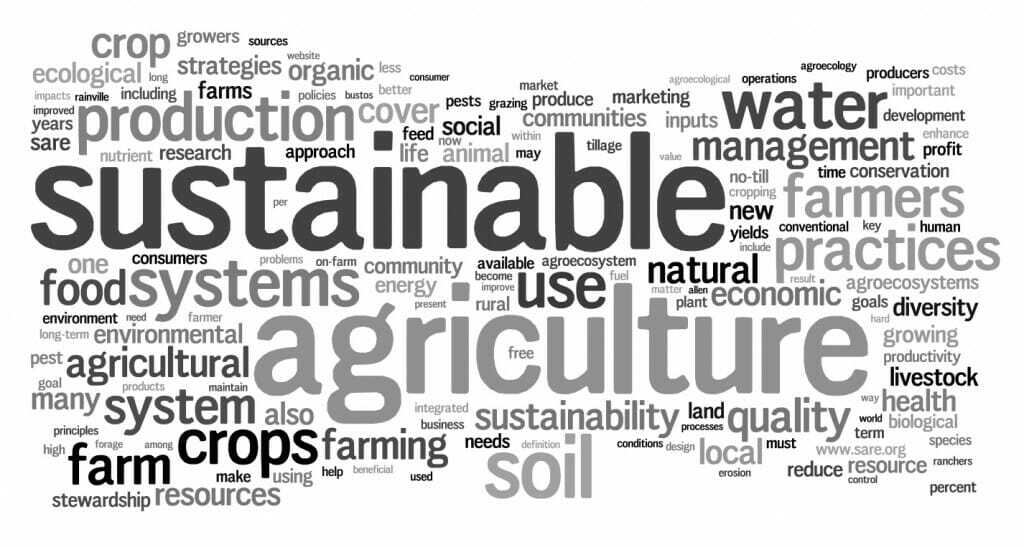
 The “S” word is a big buzz word, writes Kari Belanger in the October 2013 issue of Seed World magazine. “And for every forum and venue addressing sustainability, there are as many definitions and meanings attached to the word as people attending them.”
The “S” word is a big buzz word, writes Kari Belanger in the October 2013 issue of Seed World magazine. “And for every forum and venue addressing sustainability, there are as many definitions and meanings attached to the word as people attending them.”
Sustainability, as defined by the World Commission on Environment and Development, is “…development that meets the needs of the present without compromising the ability of future generations to meet their needs.”
That definition is precisely why I believe modern agricultural practices are sustainable! I couldn’t agree more with this excerpt from a publication of the Minnesota Soybean Research & Promotion Council:
U.S. farmers are stewards of abundant, renewable resources that provide reliable supplies of high-quality products with minimal impact on the environment. They are committed to conservation, USDA compliance and innovations that produce larger yields while using fewer natural resources.
No doubt, today’s seed technology is responsible for a large percentage of the yield increases thanks to in-plant defense mechanisms like resistance to certain diseases and invasive pests. Today’s soybean and hybrid seed corn products also are less susceptible to weather extremes, too.
While today’s seed products aren’t bullet-proof, they certainly help U.S. farmers “dodge a bullet” in less than ideal growing conditions like those experienced in 2012 and 2013. Better yields not only provide economic stability for each farm family, but good crops provide economic stability for states like Iowa and countries like the United States. Our bounty is to the benefit of the entire world.
Agricultural productivity gains are vital to enable the global population access to healthy, nutritious and affordable food. Food production starts with a seed, so the seed industry plays a critical role in providing farmers with quality seed to meet the world’s demand for food, feed, fiber and fuel.
At Latham Hi‑Tech Seeds, we follow basic ground rules: combine the industry’s best genetics with the latest trait technologies to produce products that excel in local growing conditions. It is our hope by doing this, we can have a not only a positive impact on the farmer’s long-term success but on the environment and societies we serve.
We also understand that “sustainability” means continual improvement. That’s why we continue to work with breeders to create better plants with higher yield potential in certain geographies. We need to produce more food while using natural resources more efficiently to help conserve and protect the environment. No industry / company can meet these challenges alone, so it’s important we all work together to leave a better environment for future generations.
At Latham Hi‑Tech Seeds, we believe in recognizing people for improving the quality and quantity of food available across the globe. Our mission is to help farmers feed and fuel the world by providing valuable customer experiences, innovative products and exceptional performance.
Sundays are a great time to gather around the table with your family. Today we’ve dug into the archives to share a few of our family’s favorite recipes:

Keep little hands busy with Thanksgiving preparations! Here’s a link to one of our tried and true crafts plus a kid-friendly recipe: Click Here.


![olthoff 2013 (77)[3]](https://www.lathamseeds.com/app/uploads/2013/11/olthoff-2013-773-200x300.jpg) Katie Olthoff of Stanhope in Central Iowa never ever dreamed she’d become an advocate for agriculture and the turkey industry, in particular. Today she and her husband, Bart, are raising their two sons and more than 100,000 turkeys annually On the Banks of Squaw Creek.
Katie Olthoff of Stanhope in Central Iowa never ever dreamed she’d become an advocate for agriculture and the turkey industry, in particular. Today she and her husband, Bart, are raising their two sons and more than 100,000 turkeys annually On the Banks of Squaw Creek.
“I knew Bart had majored in agriculture and came from a long line of farmers, but I honestly didn’t think I’d become a turkey farmer’s wife,” said Katie, who graduated from Iowa State University with a degree in education and taught for five years. “How we got here is a long story; the short of it is that we were blessed with an amazing opportunity. We’re raising our children in the country, which is what we always wanted. And as my husband says, we’re ‘building a legacy.’ I’m a part-time stay at home mom, which was always my dream.”
Katie’s other part-time job involves serving as communications specialist for the Iowa Turkey Federation, which allows her to give turkey farmers a voice in social media. She also helps dispel myths about farming and food production as a volunteer for Iowa Common Ground. She appreciates her flexible work schedule, which allows her to pursue her hobbies and passions.
Katie has turned her home decor and DIY (do it yourself) hobby into a small business. The HomeShed is a seasonal home decor shop focusing on antique, vintage and unique items for the home and garden.
A creative soul, who thrives on new challenges and creating beauty around her, Katie enjoys writing, photography, graphic design and home décor. Her blog, On the Banks of Squaw Creek, allows her to combine all of her interests.
Katie began as a way to document all of the changes that were occurring in her life. In 2008, she and Bart sold their first home and moved into the 100-year-old farmhouse where they still live. Their first turkey barn was built, and their first son was born.
Blogging has definitely been a learn-as-you-go process, says Katie, but through the years she has narrowed her focus to:
Recently, Katie blogged for 31 Days of Decorating with Junk. (As a Halloween junkie, I especially enjoyed her vintage Halloween decorating ideas complete with links to templates for Halloween banners.) Last Christmas Katie published a “Survival Guide” for parents of small children. (Check out her handy ideas for storing gift wrap.) She also shared ideas for “Keeping Christmas Meaningful” and a simple recipe for Slow Cooked Turkey Breast.
As a way to promote the farm life she’s come to love, today Katie is sharing with us a recipe she adapted from Jennie-O for Lemon Garlic Rotini with Zucchini. (How fun is that to say?) Even though the following recipe calls for tenderloins or filets, you could probably adapt it to make use of Thanksgiving leftovers. Give turkey a new twist tonight!
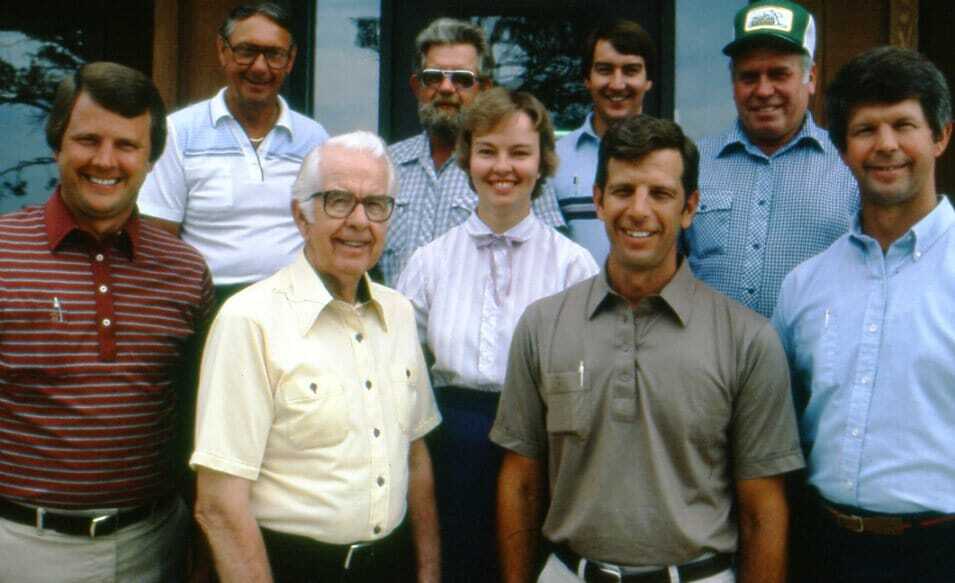
Three of Willard’s sons joined him in the seed business from 1966-1976. In the front row, from left to right, are: Tom, Willard, Don and Bill Latham. 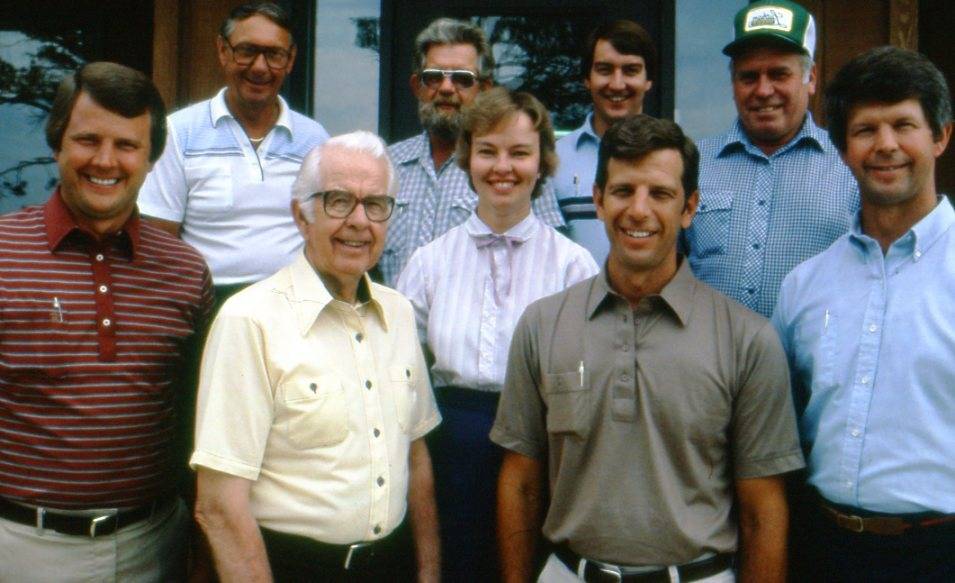
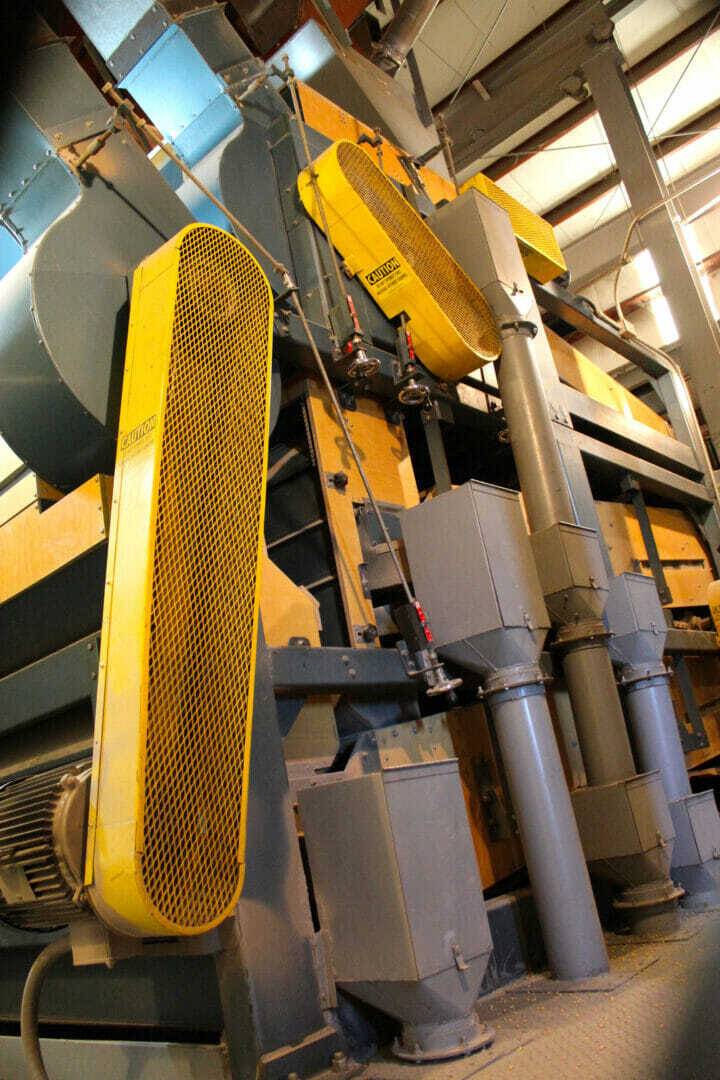
A series of screens remove sticks and pods, as well as small seeds or those with cracked seed coats. We only want the highest quality soybeans inside a Latham bag!
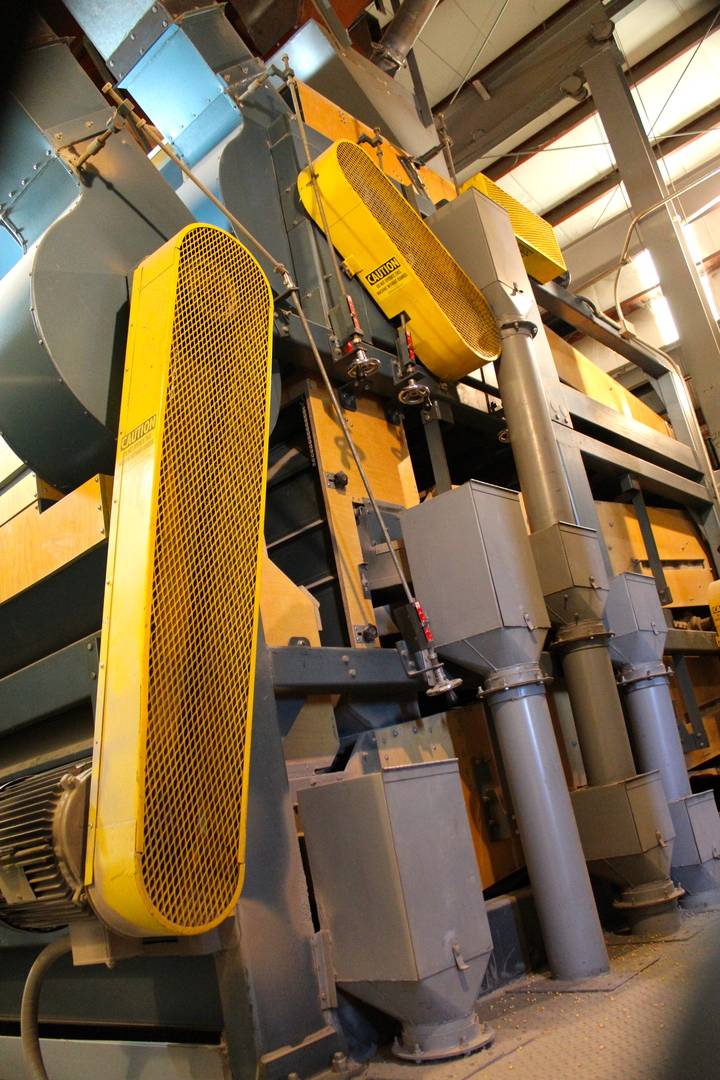

Fall field work isn’t yet complete but the “post-harvest meeting season” is already underway. On Nov. 15, I had the pleasure of attending a policy meeting of the Iowa Agri-Women.
 Now I go to a lot of meetings every year. Usually I can slip into the back of the room and blend right in with the crowd, but that was not the case last Friday! This meeting was limited to 35 women… and me. The size of this meeting was limited for the sake of discussion. There was a great agenda with very good speakers. Plus, the list of attendees was impressive.
Now I go to a lot of meetings every year. Usually I can slip into the back of the room and blend right in with the crowd, but that was not the case last Friday! This meeting was limited to 35 women… and me. The size of this meeting was limited for the sake of discussion. There was a great agenda with very good speakers. Plus, the list of attendees was impressive.
The group is led by Chairwoman Annette Sweeney to whom I’m especially grateful for the invitation. Also in attendance were Iowa Senator Sandra Greiner, noted farm writer Darcy Maulsby and Franklin County Farmer April Hemmes, who farms her family’s Century Farm while her husband works in town.
I expected this meeting to be similar to those I’m accustomed to attending, but I was wrong. Mainly, the questions were asked differently and discussed more thoroughly. As Annette opened the meeting, she announced no members of the media were present and nothing was being recorded. She encouraged attendees to be open and ask any question as there are no dumb questions.
These women talked openly, believe me! There were three different times when I found myself wishing I had brought along duct tape to keep me quiet. But I reminded myself that I came here to learn, and to learn, one must first listen.
“To listen and learn” is exactly why I decided to attend this women’s conference. The theme of the IAW meeting was soil conservation, and those of you whom read “Musings of a Pig Farmer” regularly know that soil conversation is one of my hot-button issues. You also know how strongly I feel about the need for farmers to first listen to others’ concerns, then engage in conversations and help promote a better understanding of U.S. food production.
One of the presenters last Friday pushed the idea of mandatory ties in the Farm Bill, requiring what farmers should do. One of meeting attendees was convinced “bad farmers” should be sitting in jail! This presentation and the discussion that followed reminded me of the Letter to the Editor in The Des Moines Register about a related issue.
Some folks believe the Farm Bill is a vehicle to strengthen conservation efforts, but I question why we need to use a hammer if the carrot works. After all, farmers recycled before “Green Efforts” began.
In future blog posts, I will share my thoughts on many of topics debated during last Friday’s policy about the Farm Bill, conservation and mandatory regulations. For now, I just want to give props to Iowa Agri-Women for organizing, coming together last week and discussing topics of such great importance.
More women are owning and managing farms today than ever before, and that’s all the more reason for agri-women to make their voices heard. “The percentage of farms now influenced by women is significant,” says Danny Klinefelter, Texas A&M economist and director of The Executive Program for Agricultural Producers (TEPAP). More women than ever are key decision makers and often the point person for purchasing decisions. Women’s roles in agriculture have evolved, and women are changing the landscape of agriculture.

Guest Blog post from Bethany Asbell of Best Food Facts
Going organic is a trend that’s here to stay. A reported $63 billion worldwide industry – it seems that organics won’t be leaving the food conversation anytime soon. And, that’s something we should all celebrate. After all, we all want choice, right? Organic fruits and veggies, just like conventional produce, are dense with nutrients, low in calories and contain antioxidants that help promote health. So what about claims that consumers need to buy some types of fruits and vegetables only if they are organic? These recommendations exist, but what if you can’t afford to go organic? Is it a detriment to your health to eat fruits and vegetables grown conventionally? What about the fact that the Environmental Working Group – the organization that publishes the ‘Dirty Dozen’ – says, “eating conventionally-grown produce is far better than not eating fruits and vegetables at all?”
 At BestFoodFacts.org, we celebrate consumer choice and work to provide our readers with facts, directly from unbiased experts, so that you can consider all the angles before making the food choices that are best for yourself and your family. To that end, we consulted a few university-based experts to get answers to some of the most popular questions related to organic and conventional foods.
At BestFoodFacts.org, we celebrate consumer choice and work to provide our readers with facts, directly from unbiased experts, so that you can consider all the angles before making the food choices that are best for yourself and your family. To that end, we consulted a few university-based experts to get answers to some of the most popular questions related to organic and conventional foods.
Is there a nutritional difference between organically and conventionally grown foods?
 Dr. Ruth MacDonald, professor and chair of the Department of Food Science and Human Nutrition at Iowa State University:
Dr. Ruth MacDonald, professor and chair of the Department of Food Science and Human Nutrition at Iowa State University:
“From a nutritional perspective, no. There is very little evidence that organic and conventionally (“non-organic”) grown foods vary significantly. Both are excellent sources of many nutrients and bioactive compounds. Some studies have shown differences in some compounds when grown using these techniques, but in general, the differences are minor and will not have a significant impact on overall nutrient intake.
Read the rest of what Dr. MacDonald had to say.
Is conventional produce loaded with pesticides?
 Dr. Carl Winter, food toxicologist from the University of California at Davis:
Dr. Carl Winter, food toxicologist from the University of California at Davis:
“We have a saying in toxicology: It’s the dose that makes the poison. It’s the amount of the chemical, rather than the presence or absence, that determines the potential for harm. In the case of pesticide residues on food, we can detect them, but generally at very tiny levels. I think consumers are concerned because they’re aware that these chemicals, which have potential toxic effects, show up on foods. However, the levels at which we detect these pesticides are so low consumers have nothing to worry about.
“As for pesticide use, organic food is not guaranteed to be free of pesticides. Organic food production allows the use of several EPA registered pesticides, mostly being of natural origin. Although studies claim you are much less likely to find pesticide residue in organic foods, some surveys found nearly 30% of the organic samples tested had some detectable level of pesticides.
“Fortunately, consumers in the U.S. frequently have the choice between purchasing organic and conventional foods and make food purchasing decisions that reflect their values, concerns, and lifestyles. For optimal health, consumers should continue to eat a balanced diet that includes significant amounts of fruits, vegetables, and grains, regardless if such foods are produced by organic or by conventional practices.”
Check out Dr. Winter’s full response on the Best Food Facts website.
Is organic food overall better for your health?
 Dr. Francisco Diez, associate professor of food safety microbiology in the Department of Food Science and Nutrition at the University of Minnesota:
Dr. Francisco Diez, associate professor of food safety microbiology in the Department of Food Science and Nutrition at the University of Minnesota:
“For the average American consumer, the term “organic” has a very positive connotation and very often, the beneficial properties of organic foods are misinterpreted and even exaggerated. These consumer beliefs are frequently fueled by the popular press, and more recently by many Internet sites.
“The term ‘healthful’ is a relatively broad and ambiguous concept and its use by consumers may be founded on a variety of motives. The most frequent reason why organic foods are referred as healthful, is because of the reduced use of synthetic ingredients for their production and processing. Organic foods are also regarded as better for health because of the belief that they are more nutritious and contain more health-promoting substances as a result of being produced under more natural conditions.
“In light of the complexity of the food production system, blank statements such as “organic foods are more healthful than non-organic” are oversimplifications that are often sustained by a lack of knowledge or evidence. Depending on the specific property of a given organic food, this may or may not be considered as health promoting. Consumers are encouraged to critically evaluate the information in the popular press and attempt to obtain an opposing view, including preferably at least a scientific source. We live in an age in which the information on any issue is within our reach – just “a click away.”
See the rest of Dr. Diez’s response here.
At the end of the day, nothing is more important than making the choice we feel is best for our families – especially when that choice is something we’re putting into our bodies. We celebrate the broad range of choices that our food system provides, and hope consumers will make facts one of the factors they consider when they visit the grocery store, the farmers’ market, the local CSA, their own garden or wherever they get their food. To learn more about food, or to submit your question to a food expert, visit www.BestFoodFacts.org.